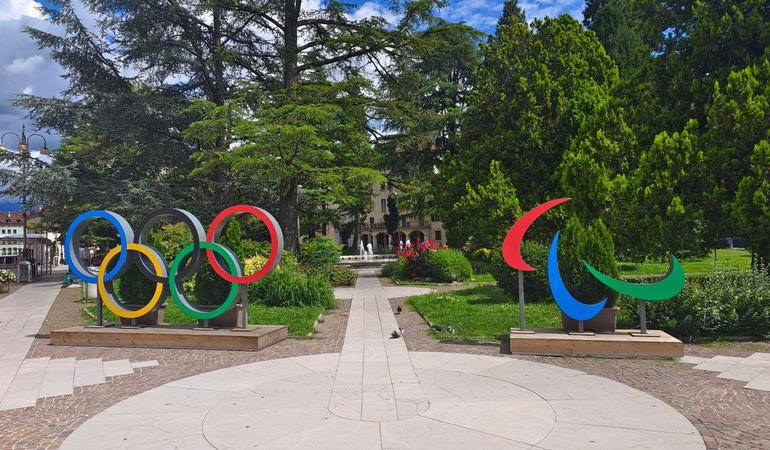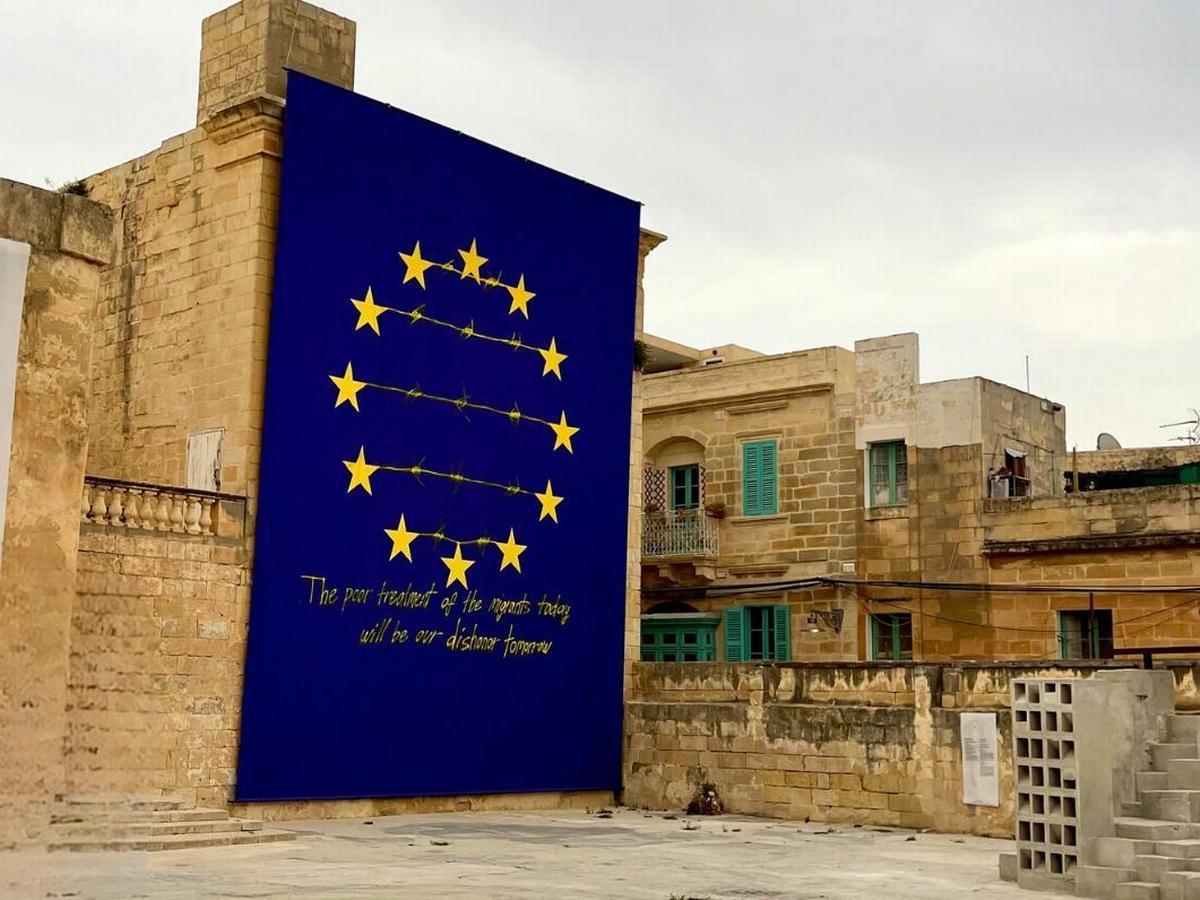
Milano-Cortina. Ecco come verranno spesi i 450 milioni di euro delle paralimpiadi



19 novembre 2024
In the beginning, it was Turkey. Then Libya, Niger, Tunisia, Egypt, up to the controversial agreement with Albania. There is a common thread linking these countries: for ten years they have been the testing ground for European border externalisation policies. Measures adopted in an attempt to stem migratory flows whose name, 'externalisation', still struggles to enter the vocabulary of public debate, as demonstrated by an exchange aired last September between the TV anchorwoman Lilli Gruber and Elly Schlein, leader of the Italian Democratic Party (PD): "You said today, talking about Lampedusa, that it is a demonstration of the failure of the government's externalisation policies," said the journalist. Who understands you if you talk like that?"
The expression 'externalisation of borders' refers to all actions that a State or an International organisation such as the European Union takes outside its territory to prevent migrants from entering
The expression 'externalisation of borders' refers to all actions that a State or an International organisation such as the European Union takes outside its territory to prevent migrants from entering. Most often this involves agreements with countries of origin or transit to which they delegate, often in exchange for money, the patrolling of borders, the processing of asylum applications and/or the keeping of migrants in special facilities. This scheme, however, has raised and still raises many criticisms, including high costs, lack of transparency, human rights risks and dubious effectiveness.
Asylum and migration, what the new EU pact provides
In Europe, the first initiatives along these lines date back to the 1990s, but it was in 2015, at the height of the Syrian exodus and the flow along the Central Mediterranean route, that the externalisation of borders took hold as the main strategy in migration management.
In May of that year, the European Commission adopted the European Agenda on Migration, which foresees 'immediate actions to intervene upstream in regions of origin and transit', such as the 'strengthening of third countries' border management capacities'.
The same line was confirmed by the action plan adopted in November of the same year at the end of the Valletta summit between African and European leaders, who committed to 'support national land, sea and air border control and maritime surveillance instruments aimed at preventing irregular migration', including through specific funding.
The first testing ground, which would become the model for European externalisation policies, is the agreement between the Union and Turkey signed in March 2016: in exchange for €6 billion, Ankara committed to readmit to its territory all migrants intercepted by the Greek authorities after crossing the border. For each one of these, Brussels would welcome back to Europe one Syrian refugee among the 3 million apprehended in Turkey. Among the terms of the agreement was also the acceleration of the country's integration process into the Union, which had been stalled for years.
According to the Commission, the agreement has reduced irregular entries from Turkey by 94 per cent, but at what price? Over the years, several reports by international organisations, including UN bodies, have denounced the violations committed by the Turkish authorities against Syrian refugees, many of whom have been forcibly deported to Syria where they risk violence and persecution. Not only that: since the agreement came into force in January 2024, only 40,000 refugees have been relocated to EU states, a figure that falls far short of promises.
After the fall of Bashar Al-Assad's regime, Syria, refugees in limbo: 'We want to come back, but it's too soon'
Journalistic enquiries and reports by international organisations, including UN bodies, have documented the frequent human rights violations committed by the Libyan coast guard against migrants, also using vessels donated by Italy
In February 2017, another piece was added: the Italy-Libya memorandum of understanding concluded between the executive then led by Paolo Gentiloni and the national unity government in Tripoli, which controls only part of the North African country. Promoted by then-Interior Minister Marco Minniti, the text commits Italy to 'provide technical and technological support to Libyan bodies in charge of the fight against illegal immigration', to contribute to the 'adaptation and financing of reception centres' and to the 'training of Libyan personnel'.
Then, in July 2018, the government approved by decree the transfer, free of charge, of 12 naval units to Libya 'to increase the operational capacity of the Libyan authorities in activities to combat illegal immigration and human trafficking, as well as rescue at sea'. Here too, journalistic enquiries and reports by international organisations, including UN bodies, have documented the frequent human rights violations committed by the Libyan coast guard against migrants, also using vessels donated by Italy. In detention centres, then, there are "deaths due to violence, suicides and diseases" and "asylum seekers, refugees and migrants, both male and female, including minors, are regularly subjected to torture and other forms of ill-treatment, including rape, sexual violence, forced labour and extortion", as the UN Refugee Agency (UNHCR) wrote in 2020. For this reason, the report concludes, Libya cannot be considered a safe country to which to return migrants intercepted at sea. Despite this, in 2022 the agreement was renewed for another five years.
The victory of the centre-right in the 2022 general elections gave new impetus to externalisation policies. In July 2023, the European Commission signed a memorandum of understanding with Tunisia, strongly supported by Italian Prime Minister Meloni, which provides funding of 150 million euros to support the North African state's budget and 105 million for border management. The signing raised criticism from some European heads of government who were excluded from the negotiations and from the High Representative for Foreign Policy Josep Borrell himself, while last March the European Parliament passed a motion contesting the Commission's unilateral decision to disburse the planned funds in a single tranche and without conditions. On 21 October last, the European Ombudsman (the institution in charge of investigating cases of alleged maladministration by EU bodies) complained that 'the European Commission did not adopt an independent human rights impact assessment before signing the protocol and did not carry out autonomous periodic evaluations of the impact of the actions implemented under the memorandum of understanding'.
Meanwhile, the UN continues to express concern about violations suffered by migrants in the North African country, including round-ups of arbitrary arrests, deportations to the border with Algeria, and sexual violence. "We are concerned that despite these serious allegations, Tunisia continues to be considered a safe haven and that cooperation under the memorandum with the European Union continues, putting human rights at serious risk," eight UN special rapporteurs said on 14 October.
In all the cases mentioned, as also for the pact with Egypt signed last March, the European Commission chose the formula of the memorandum of understanding or joint declaration instead of the international agreement. "This makes it possible to streamline the institutional steps and bypass parliament, denying the possibility of debate to the detriment of transparency," former MEP Laura Ferrara told us.
What also makes these agreements smoky is the lack of clarity about the funds used to finance them. "There is no item in the European budget that is explicitly earmarked for this purpose,' Chris Jones, director of the Statewatch observatory, explained to lavialibera . 'Some of the money comes from the funds of the Directorate-General for Home Affairs, some from the budget for external action, usually used for development aid, and some are voluntary contributions from individual member states. This on the one hand prevents externalisation from explicitly appearing as an EU-funded policy, on the other hand it reduces the degree of accountability'.
For some years now, a new frontier of externalisation has been explored: not just paying countries of origin or transit to keep migrants away from 'fortress Europe', but sending those who arrive to third states and managing there, in special detention centres, their asylum claims and possible deportation procedures.
This is what successive Conservative governments in the United Kingdom have tried to do since 2022 with the Rwanda plan, which failed due to the intervention of the High Court of Justice and was then abandoned at the behest of the current Labour Prime Minister Starmer (who is now, according to the Sunday Times, preparing 'old-style' outsourcing agreements with Turkey, Iraqi Kurdistan and Vietnam). And this is what the Meloni government is trying to do - unsuccessfully - with Albania. Despite legal flaws and practical obstacles, this model is capturing the interest of the European Commission and foreign leaders, including overseas. According to The Sun, Donald Trump himself is considering launching a plan to deport irregular migrants from the US to Rwanda.
La tua donazione ci servirà a mantenere il sito accessibile a tutti
La tua donazione ci servirà a mantenere il sito accessibile a tutti